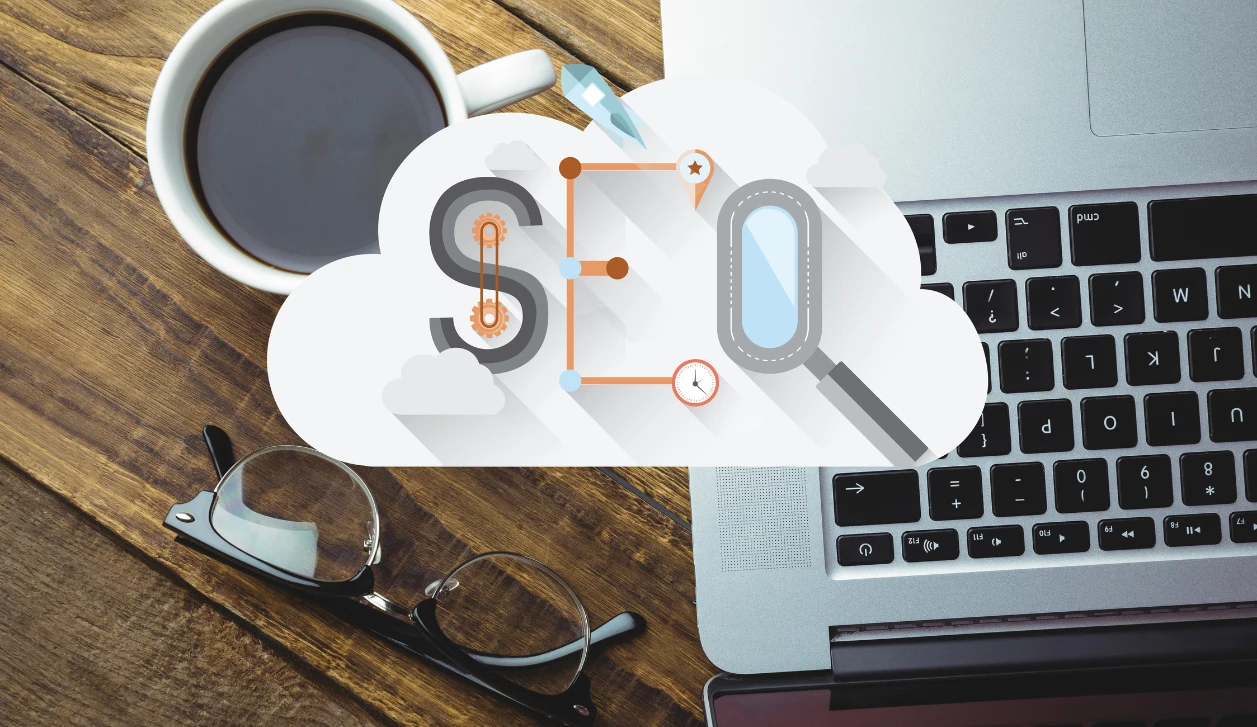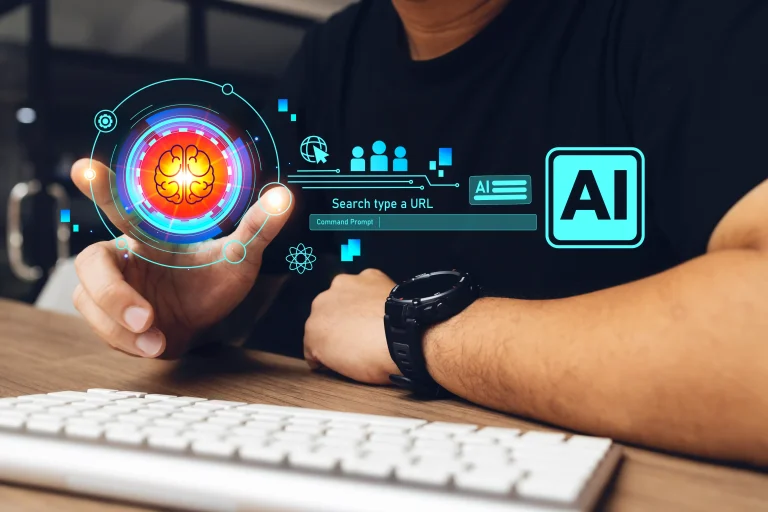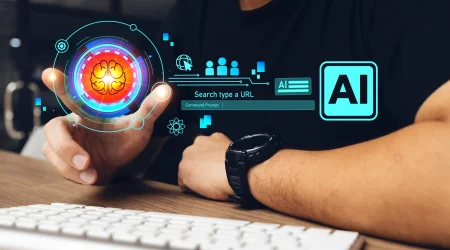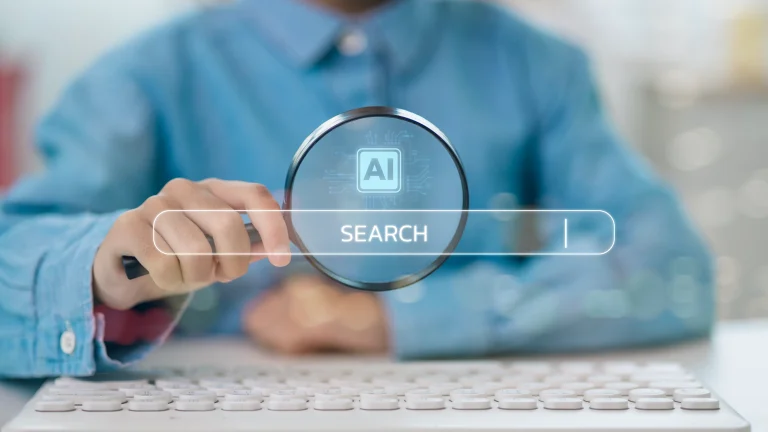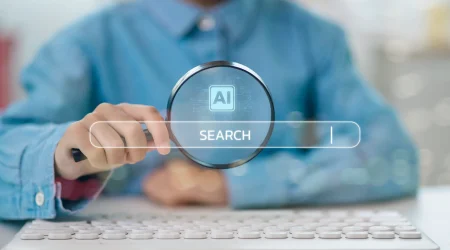Artificial Intelligence (AI) is revolutionising nearly every corner of digital marketing — and search engine optimisation (SEO) is no exception. From how search engines interpret intent to how brands create and optimize content, AI is reshaping the SEO landscape at record speed.
In 2025 and beyond, understanding how AI influences search is no longer optional. It’s the key to staying visible, relevant, and competitive in an AI-driven digital world.
The Current State of SEO: Few Loopholes
SEO today is still built around algorithms, keywords, backlinks, and user experience. While these fundamentals remain critical, the system has limitations that create gaps — and AI is starting to close them.
Limitations of Current SEO Practices
- Keyword Over-Reliance: Traditional SEO often focuses too heavily on exact-match keywords, ignoring context and user intent.
- Manual Optimisation: Content creation, link building, and audits still rely on time-consuming manual work.
- Slow Adaptation: Search behaviour evolves faster than human teams can track.
- One-Size-Fits-All Analytics: Many tools lack the predictive power to forecast trends or understand nuanced user behaviour.
These loopholes are where AI steps in — automating repetitive tasks, predicting changes, and providing deeper insights that make SEO far more efficient.
Introduction of AI in SEO
AI isn’t just an upgrade; it’s a complete shift in how SEO operates. Machine learning models, natural language processing (NLP), and large language models (LLMs) like ChatGPT and Google Gemini are transforming everything from content strategy to on-page optimisation.
AI is Taking Over Brands in Every Aspect
From email marketing and customer service chatbots to predictive analytics and SEO, AI is enhancing how brands communicate, personalise experiences, and make data-driven decisions.
Instead of guessing what audiences want, marketers now use AI to analyse behaviour, intent, and sentiment in real time.
The Global Growth of AI in SEO
According to industry research, the global market for AI in SEO is projected to reach $2.4 billion by 2026, growing at a CAGR of 38.2% from 2020 to 2026. This shows how rapidly AI is becoming essential to modern marketing strategies.
How AI Is Used in Google Searches
Google has been at the forefront of AI integration for years. Algorithms like RankBrain, BERT, and MUM (Multitask Unified Model) rely on machine learning to interpret search intent, understand language, and deliver contextually relevant results.
In practice, this means:
- AI interprets queries more like a human would — understanding meaning, not just keywords.
- Google can identify topic authority rather than counting backlinks alone.
- AI personalises search results based on user location, preferences, and history.
The future of SEO, therefore, is less about optimising for algorithms and more about optimising for understanding.
Why AI SEO Is Important
AI makes SEO smarter, faster, and more effective. It helps marketers go beyond reactive strategies and adopt predictive optimisation — anticipating what users will search for before they do.
Key reasons why AI SEO matters:
- Improves accuracy in keyword targeting
- Enhances user experience through better intent matching
- Automates repetitive SEO processes
- Increases ROI through smarter campaign analysis
- Keeps pace with evolving search engine algorithms
In short, AI doesn’t just support SEO — it’s becoming the foundation of it.
How AI Works in SEO
AI in SEO relies on data, pattern recognition, and prediction. Here’s how it operates across the main stages of optimisation:
- Data Collection: AI tools analyse millions of search queries, backlinks, and content metrics.
- Pattern Recognition: Machine learning identifies correlations between content features and rankings.
- Prediction: AI forecasts keyword trends and ranking potential based on historical data.
- Automation: Tasks like meta tag generation, link analysis, and technical audits can be automated.
- Adaptation: AI systems continuously learn and refine based on new input data.
This adaptive capability allows AI-driven SEO to remain effective, even as search engines evolve.
Benefits of Using AI in SEO
Integrating AI into SEO strategies offers a range of measurable benefits:
- Smarter Keyword Research: AI discovers hidden and semantic keyword opportunities.
- Improved Content Creation: Tools like Jasper and SurferSEO generate outlines based on ranking data.
- Real-Time Insights: AI tracks algorithm updates and user trends faster than traditional analytics.
- Enhanced UX: Predictive analysis helps tailor websites to user intent and preferences.
- Increased Efficiency: Automation reduces human error and frees time for strategy.
For agencies and brands alike, AI delivers scalability and precision that manual SEO simply can’t match.
Examples of AI-Powered SEO Tools and Technologies
Several advanced tools are leading the AI-SEO revolution:
- SurferSEO: Optimises content based on real-time SERP data and NLP analysis.
- MarketMuse: Uses AI to assess topic coverage and identify content gaps.
- Clearscope: Improves readability and keyword relevance with semantic scoring.
- Frase: Creates AI-driven content briefs and optimised outlines.
- ChatGPT and Gemini: Help research topics, draft metadata, and simulate AI-based search intent.
Each of these tools uses machine learning to improve search visibility and streamline optimisation processes.
The Future of SEO
The future of SEO is AI-first. As search engines evolve into conversational assistants, websites must optimise for AI understanding, not just keyword matches.
We’ll see:
- Greater use of llms.txt files to manage how AI crawlers index site data.
- Emphasis on entity-based SEO over traditional keyword-based optimisation.
- Integration of voice, visual, and conversational search strategies.
- Focus on E-E-A-T (Experience, Expertise, Authoritativeness, Trustworthiness) signals powered by AI validation.
Implications for Businesses and Digital Marketers
Businesses that embrace AI SEO early will gain a competitive advantage. It enables marketers to make informed decisions, personalise content, and allocate budgets more effectively.
However, those who ignore AI developments risk losing visibility as search platforms evolve into AI-powered ecosystems.
For digital marketers, mastering AI tools and understanding data interpretation is now as essential as knowing basic SEO.
Importance of Keeping Up with AI Developments in SEO
AI technology evolves quickly — and so do search algorithms. Regular updates, continuous learning, and strategic experimentation are vital.
Staying informed about new AI models, such as Google Gemini, ensures that your SEO remains future-proof and aligned with the direction of modern search.
Challenges and Ethical Concerns
While AI offers huge benefits, it also raises challenges:
- Bias in Algorithms: AI can inherit human biases from training data.
- Over-Automation: Relying too much on AI may reduce creativity or authenticity.
- Data Privacy: Managing user data responsibly is essential for compliance and trust.
The solution lies in balance — using AI as a strategic partner, not a total replacement for human expertise.
Conclusion
AI has officially entered the SEO mainstream — not as a passing trend, but as the future of digital optimisation. It automates tasks, analyses data at scale, and helps brands understand users better than ever before.
As AI continues to evolve, businesses that adopt it strategically will see faster growth, stronger visibility, and more meaningful engagement.
At Absolute Websites, we combine AI-driven insights with creative strategy to deliver smarter, more effective SEO for our clients.
Ready to future-proof your SEO? Contact us today to learn how AI can power your next big leap.


